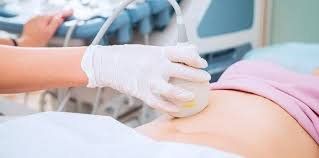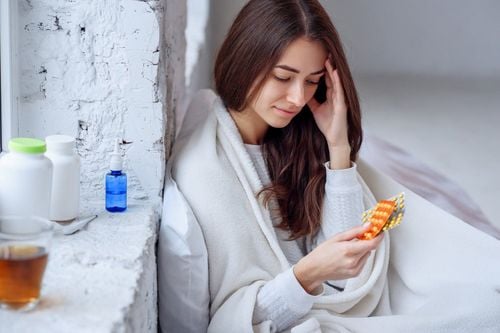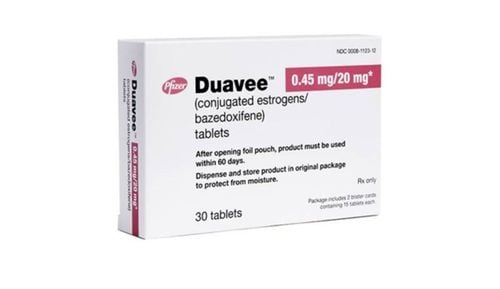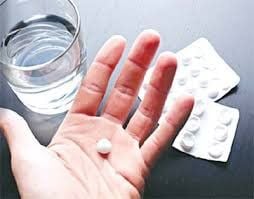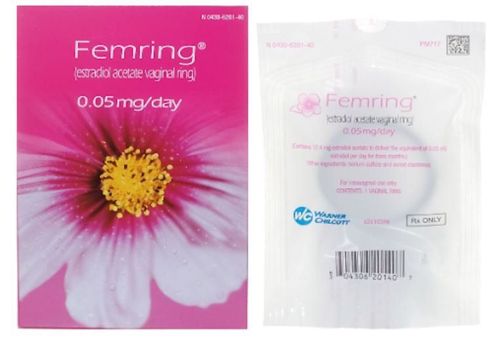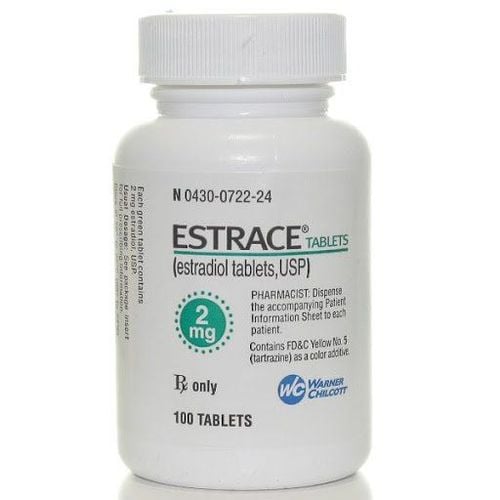This is an automatically translated article.
Menopause is a natural stage in a woman's life when her menstrual cycle ends. Menopause can cause many unpleasant symptoms and increase the risk of certain diseases. However, a reasonable menopausal diet can help reduce symptoms and reduce the risk of disease.
1. What is menopause?
Menopause is a natural phase in a woman's life. It is calculated from 12 months after a woman's last menstrual period. However, the transition and symptoms associated with menopause can persist for several years afterward.
Menopause causes some unpleasant symptoms like hot flashes, poor sleep and can negatively affect metabolism and bone density. At this stage, a woman also has a high risk of cardiovascular diseases, diabetes, blood fat,...
However, a scientific diet can help reduce unpleasant symptoms and reduce the risk of disease. But not all women know the menopausal diet, do not know what to eat at menopause?
2. 11 supplements for menopausal women
2.1. Thien ma: Helps reduce hot flashes
Thien ma is one of the most researched supplements for menopause. Several studies have shown that fenugreek root helps reduce hot flashes when compared to a placebo, a dummy treatment.
However, not all menopausal women can use angelica. If you have liver problems, do not use this food.
2.2. Flaxseed: Soothes Night Sweats
Flaxseed and flaxseed oils may help some women with mild menopausal symptoms. This is a good source of lignans - antioxidants caused by the aging process, which tend to balance female hormones.
However, not all studies have shown these benefits in reducing hot flashes in menopausal women.
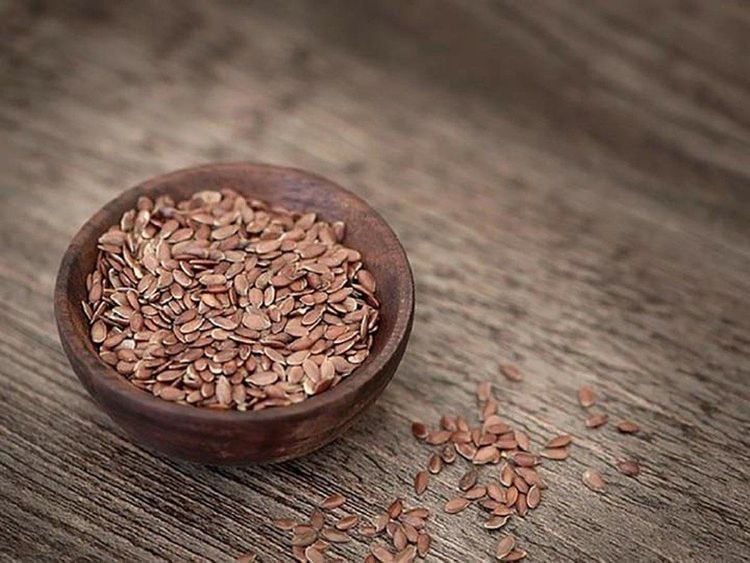
Hạt lanh rất tốt cho phụ nữ mãn kinh
2.3. Calcium: Prevents Osteoporosis
Bone loss can become a serious problem when hormone levels drop after menopause. It is important to provide enough calcium for the body.
Women under the age of 51 need 1,000 milligrams of calcium per day. Women 51 and older: need 1,200 milligrams of calcium per day. The best way to get calcium is from food. However, your diet may not provide the calcium you need, so you will need to supplement but take a low dose, no more than 500 mg at a time with food during the day. This will help your body absorb calcium better.
2.4. Red Clover
Many women use red clover in the hope that the natural phytoestrogens found in it will relieve their menopausal symptoms. However, until now, research results have not been unanimous on the effectiveness of this food. Although there is some concern about an increased risk of uterine cancer when women use red clover for 3 months. But studies have not shown this.
2.5. Vitamin D
Vitamin D is just as important as calcium for bone health. Without vitamin D, your body cannot absorb calcium. Most adults need 600 IU per day. People 71 years of age and older need 800 IU per day. Vitamin D is found in many foods and supplements. You've also heard that your body produces vitamin D when exposed to sunlight. This is absolutely correct. But, the sun can also damage your skin. Therefore, it is best to focus on foods and use supplements if your diet is not enough vitamin D.
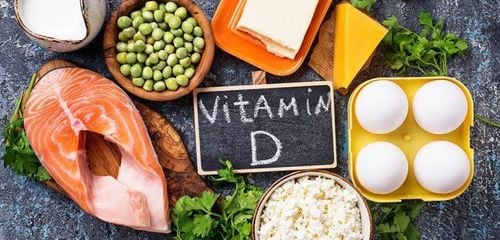
Vitamin D có trong một số loại thực phẩm có thể bổ sung hằng ngày
2.6. Wild yam: hormone replacement
Pills and creams are popular alternatives to menopausal hormone therapy. Some natural compounds in these potatoes appear to be similar to estrogen and progesterone.
However, to date, clinical studies have not demonstrated these products can relieve menopausal symptoms in women.
2.7. Ginseng
Several studies have found evidence that different types of ginseng can help improve a woman's quality of life during menopause. Ginseng has been shown to boost mood and improve sleep. But so far, studies have not found that American or Korean ginseng can help relieve menopausal symptoms such as hot flashes.
2.8. John's Wort
John's Wort is a well-known herb used to treat mild depression. This herb also has special benefits for women during menopause. There is some evidence that this herb can improve mood and calm the mood swings associated with menopause, especially when combined with angelica.
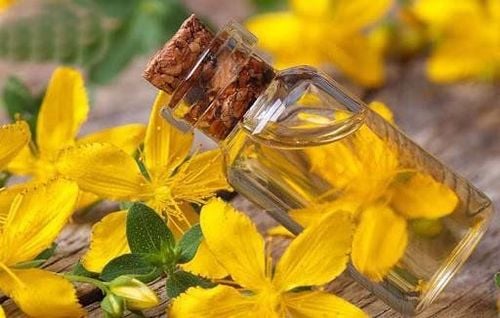
Thảo dược John’s Wort nổi tiếng trong điều trị chứng trầm cảm nhẹ
2.9. DHEA
The levels of the natural hormone DHEA in our bodies begin to decline after the age of 30. Some studies have found that DHEA supplementation reduces menopausal symptoms such as hot flashes and decreased sex drive. There is also some concern that long-term use or use of high doses of DHEA may increase the risk of breast cancer.
2.10. Dang Gui
Dang Quy has been used in Traditional Medicine to treat women's health for thousands of years. But recent research has found no evidence to prove it works to reduce hot flashes during menopause. You should talk to your doctor before using this medicine.
2.11. Soy
Menopausal women in the US are 8 times more likely to have hot flashes than women in Asian countries. Could soy in the Asian diet explain this difference? The answer is likely, studies have found soy to be effective in reducing hot flashes, although the results are modest.
Soy foods and phytoestrogen supplements - estrogen-like compounds found in some plants, sometimes used to relieve mild hot flashes.
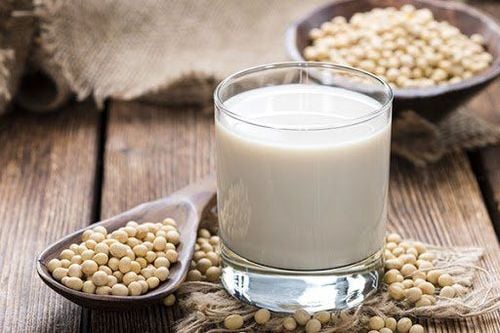
Đậu nành cung cấp lượng estrogen cần thiết cho phụ nữ tuổi mãn kinh
Currently, Vinmec International General Hospital has a package of pre-menopausal health examination and counseling. When registering for an examination package, customers will be examined and consulted with a specialist in Gynecology; Performing tests to evaluate hormonal status such as:
Gynecological examination Gynecological examination, breast examination Transabdominal ultrasound of uterus and ovaries Taking samples for cervical-vaginal cytology Mammogram (2 sides) Osteoporosis Measurement Perform other tests to detect premenopausal conditions, if any. To register for examination and treatment at Vinmec International General Hospital, you can contact Vinmec Health System nationwide, or register online HERE.
References: webmd.com, healthline.com
MORE
Signs of declining estrogen - what happens when estrogen drops? How does menopause affect women's health? Normal levels of testosterone and estrogen in women




